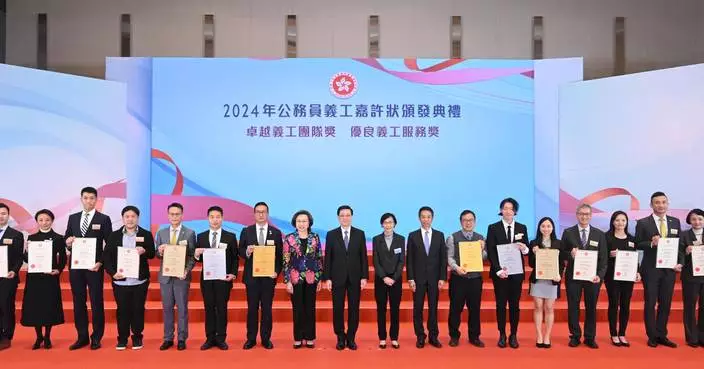Courts (Remote Hearing) Bill gazetted
The Government published in the Gazette today (November 22) the Courts (Remote Hearing) Bill, which seeks to provide a clear legal basis for judges and judicial officers to order remote hearings for court proceedings at various levels of courts and tribunals where appropriate, having regard to all relevant factors, as well as the dual requirements of open justice and fair hearing.
A Government spokesman said, "In response to rising expectations from court users and the community in recent years, the Judiciary has been taking proactive measures in making greater use of technology in enhancing the efficiency of court operations. Remote hearing is one of the Judiciary's key initiatives on the use of technology in this regard. In line with established practice, the Court will direct the use of remote hearings only if it is fair and just to do so, having regard to a host of relevant considerations. It is a case management decision of the Court in the exercise of its existing case management powers."
The major provisions of the Bill cover the following:
(a) the details of making a remote hearing order, including the factors to be considered by the Court;
(b) the operation of remote hearings, including the powers of judges, attendance of participants, as well as transmission of documents, presentation of objects and signing of documents;
(c) the scope and exceptions to the use of remote hearings;
(d) the safeguards for open justice in remote hearings; and
(e) the proposed new offences to criminalise unauthorised recording, publishing and broadcasting of court proceedings conducted through both physical and remote hearings.
"Taking into account limitations, risks and concerns in adopting remote hearings for some court proceedings having regard to the paramount consideration of ensuring administration of justice, the Bill sets out express exceptions to the use of remote hearings, including hearings of all proceedings relating to national security and criminal trials in all other cases," the spokesman said.
"As the lack of a physical setting may render remote hearing more susceptible to unauthorised recording and publishing of court proceedings, the Bill contains new offences to criminalise such conduct which may prejudice or interfere with the court proceedings," the spokesman added.
Two rounds of consultation on the draft Bill were conducted in February 2021 and June 2022 respectively. In general, public response to the use of remote hearings for civil and criminal proceedings in court, and the proposed legislative exercise has been positive. Key stakeholders including the Hong Kong Bar Association, the Law Society of Hong Kong and law enforcement agencies have also indicated support for the proposed legislation on remote hearings. They also support the increased use of technology to enable more flexible means of disposing court proceedings, which is conducive to enhancing the Court's efficiency and enabling the Court to better tackle unforeseen situations.
The Bill will be introduced into the Legislative Council for first reading on December 4.







